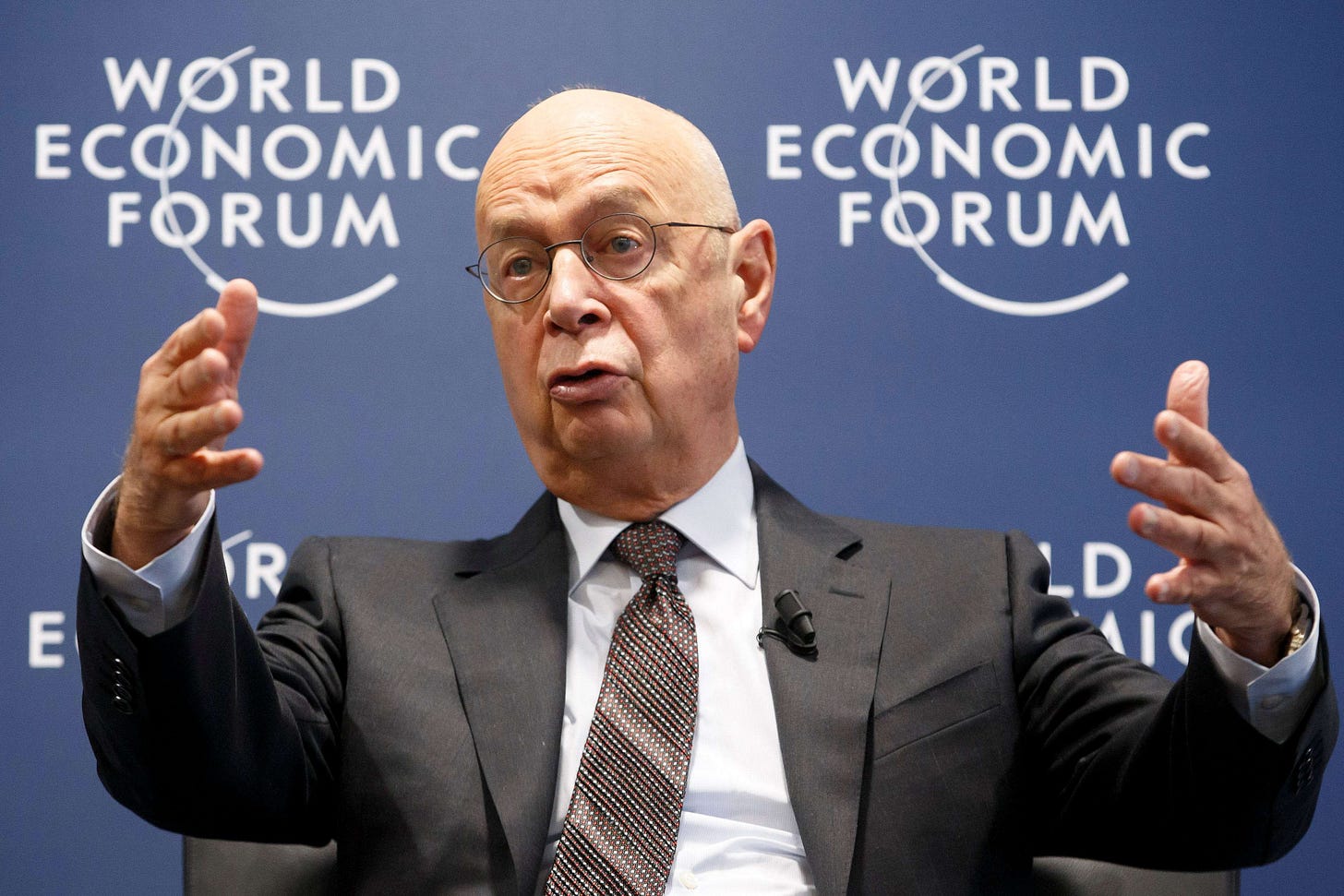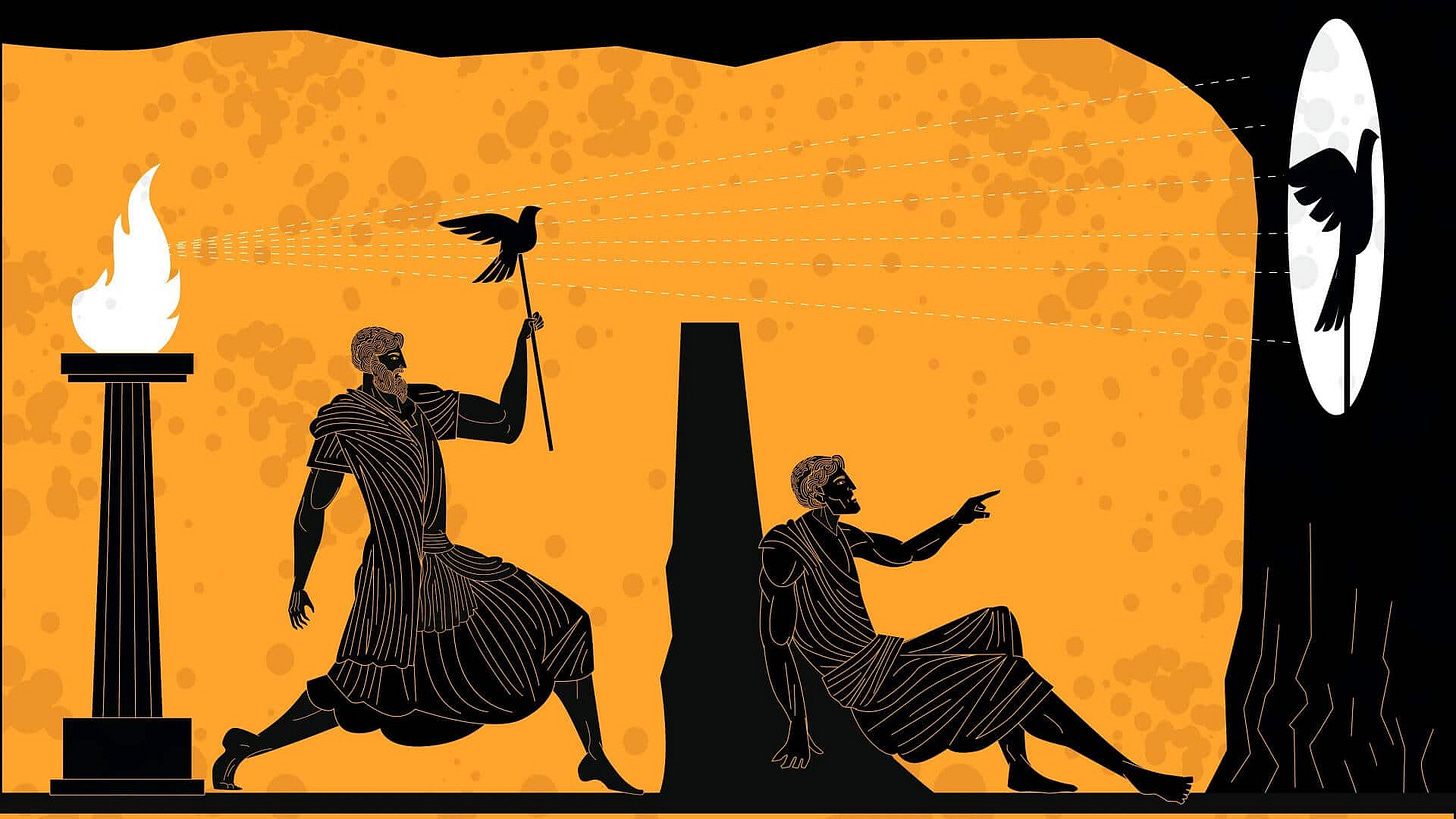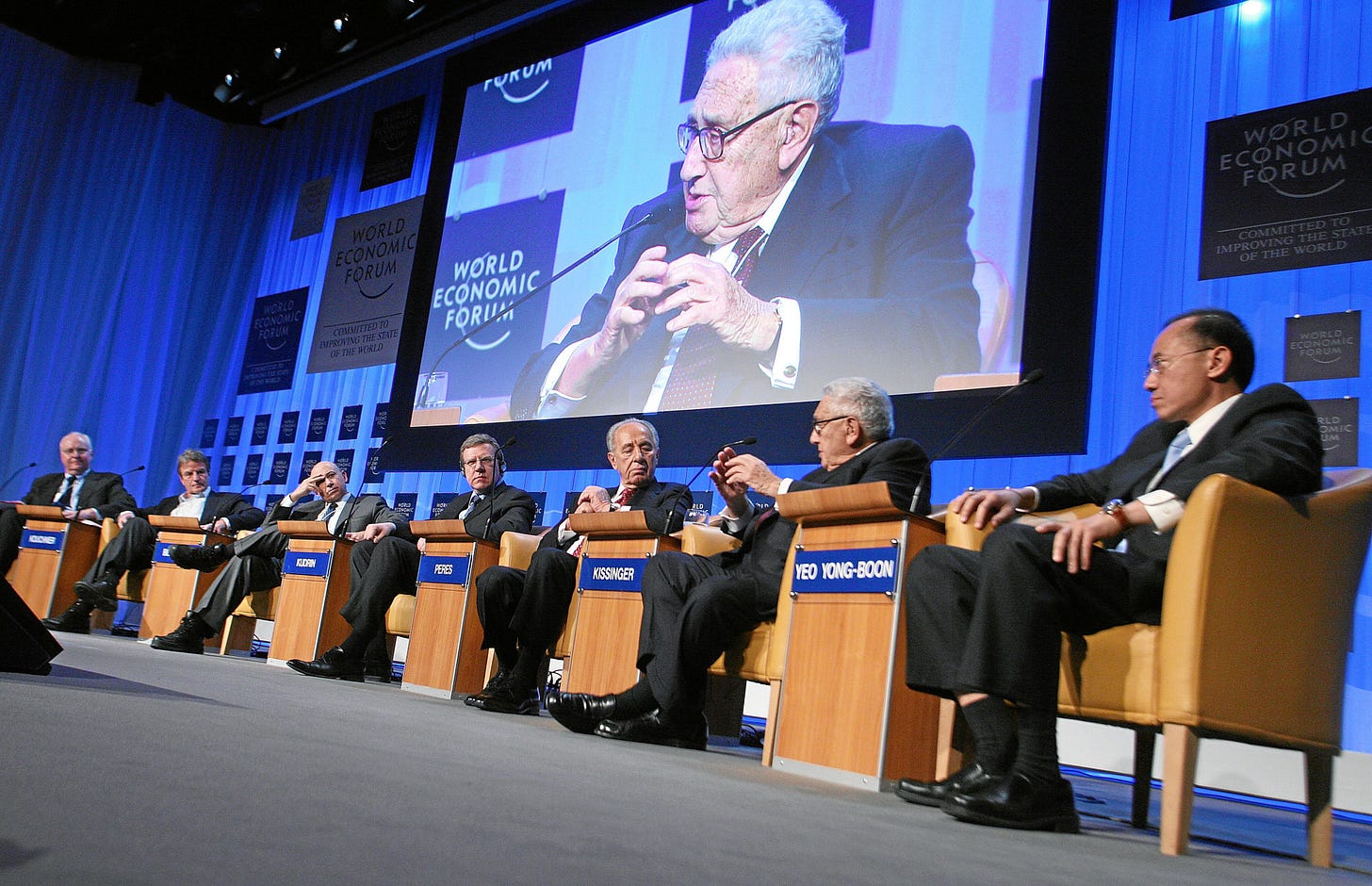The WEF is proud to have infiltrated your government
The World Economic Forum is actively and openly eroding so-called democratic institutions through the overt infiltration of power centers across the world.
What do Tony Blair, Angela Merkel, Emmanuel Macron, Keir Starmer, and Jacinda Ardern have in common?
What about Bill Gates, Jeff Bezos, Peter Thiel, and Mark Zuckerberg?
You guessed it. They’re benevolent business, political, and opinion leaders obsessed with making the world a better, safer place for humanity. They’re on the cutting edge of pioneering technology and advancing public policy agendas that propel humanity’s progress and promote global cooperation.
They’re “committed to improving the state of the world.”
Perhaps.
More accurately, they’re delegates of the World Economic Forum—and more specifically, they have been named Young Global Leaders by the WEF—and are tasked with carrying forth its aims and objectives within their particular spheres of influence.
What is the World Economic Forum (WEF) exactly?
The WEF has held a yearly conference (or the Annual Meeting of the World Economic Forum) in Davos, Switzerland since its founding in 1971—the organization is sometimes simply referred to as “Davos.” It gathers representatives of global business, government, civil society, media, and academia at the luxury ski resort “for the networking and social interactions that take place in the corridors, side rooms, hotel suites, and restaurants of the Alpine town,” and its wealthy attendees have led to such terms emerging as the “Davos Class.”
There’s nothing overtly nefarious about a gathering of world leaders under the auspices of idea-sharing and common agenda-setting—especially if the aim, as the WEF claims, is to “provide a crucial space to focus on the fundamental principles driving trust, including transparency, consistency and accountability.”
At its best, it’s a forum of exchange, dialogue, and common goal-setting. But a bold claim (or shocking admission) from Swiss professor, industrialist and WEF founder Klaus Schwab provides a clue as to how the WEF operates.
Back in 2017, Schwab said he was “very optimistic about the future of the world.” Why? Because, as he went on to detail, the WEF’s mission is to “penetrate [government] cabinets,” and he could boast that “half, or more than half” of Justin Trudeau’s cabinet was “actually Young Global Leaders of the Economic Forum.”
The open, public admission of an unelected, unaccountable, global organization’s initiative to penetrate government cabinets around the world should provoke outrage. Schwab is openly admitting that the objectives of the WEF make their way into government cabinets with an agenda set without the participation or consultation of the citizens it affects.
Who is setting the agenda?
Membership of the WEF is divided into three tiers: Regional Partners, Industry Partner Groups, and the most esteemed, the Strategic Partners. Corporations and industry groups finance the WEF through membership fees and they provide the member company with extra access to meet delegates, hold private meetings and set the agenda. The cost of an annual Strategic Partner status with the WEF was last reported in 2014 by the FT as 600,000 Swiss Francs ($692,577) per year. In 2011, it cost $71,000 for a non-corporate aligned individual to attend Davos ($52,000 for an annual WEF membership + $19,000 for the ticket to the event).
Among the WEF’s current strategic partners are Amazon, Bank of America, Barclays, BlackRock, BP, Chevron, Citi, Coca-Cola, Credit Suisse, Deloitte, Deutsche Bank, Dow Chemical, Facebook, GE, Goldman Sachs, Google, HSBC, JPMorgan Chase, Mastercard, McKinsey, Morgan Stanley, Nestlé, Open Society Foundations, Palentir, PepsiCo, Pfizer, Siemens, Total, Uber, UBS, Visa, among others.
The top governing body or Board of Trustees of the World Economic Forum includes many representatives of global finance. Among them are Mukesh Ambani, who sits on advisory boards to Citigroup, Bank of America and the National Bank of Kuwait. Other board members hold managerial roles in Accenture, AXA, Bain & Co, Blackrock, CERN, Canada’s Finance Ministry, the IMF, the European Central Bank, Salesforce, Seimens... and other global corporations.
These are the companies “collaborating with the Forum to shape industry, regional and global agendas for positive change.”
With its ranks filled to the brim with representatives of corporate and financial institutions, the WEF participates in eroding the sovereignty and independence of elected governments, turning their elected politicians into shadows on the cave wall for citizens to gaze at. The dancing puppets distract from the deals made and objectives determined by the “Davos Class.”
A cursory glance at global economic data reveals who the “Davos Class” is working for.
“The WEF and other multi-stakeholder endeavors have democratic deficits when the people that they affect do not have adequate opportunities to participate in and control their processes,” said Jan Aart Scholte, professor of global transformations and governance challenges at Leiden University. “It is an exclusive invitation-only club, and meaningful participation is mainly limited to the world’s more powerful governments, corporations, and civil society actors. Moreover, when excluded people disagree with or feel harmed by WEF activities, they generally lack adequate channels to be heard and pursue redress.”
“The annual meetings are a means to promote social connections between key global power players and national leaders along with the plutocratic class of corporate and financial oligarchs,” said Andrew Marshall of the Transnational Institute. “The WEF has been a consistent forum for advanced ‘networking’ and deal-making between companies, occasional geopolitical announcements and agreements, and for the promotion of ‘global governance’ in a world governed by global markets. Indeed, the World Economic Forum’s main purpose is to function as a socializing institution for the emerging global elite, globalization’s ‘Mafiocracy’ of bankers, industrialists, oligarchs, technocrats and politicians. They promote common ideas, and serve common interests: their own.”
The data reveal that the winners of “World Economics” are not the majority of the human population. You’ve likely seen the global income/poverty trends that inspired the Occupy Wall Street movement after the ‘08/’09 economic crash.
Despite claiming to be “committed to improving the state of the world” since 1971, the WEF has not been able to significantly shift the data on income inequality, poverty, and the concentration of wealth towards “the world.” Rather, since the 1980s, wealth has concentrated at the top of the pyramid and expanded at the expense of the global population.
Davos recruits government leaders
How many government leaders are also WEF Young Global Leaders? The list below provides a snapshot of YGLs past and present who have held elected or non-elected government positions:
Daniel Azin (President of Ecuador), Carlos Quesada (President of Costa Rica), Angela Merkel (Chancellor of Germany), Tony Blair (British Prime Minister), Vladimir Putin (President of Russia), Leo Varadkar (Irish Prime Minister), Sheikh Hamdan Al Maktoum (Crown Prince of Dubai), David Cameron (British Prime Minister), Mamuka Bakhtadze (Prime Minister of Georgia), Haakon Magnus (Crown Prince of Norway), Felipe Calderon (President of Mexico), Jose Manuel Barroso (Prime Minister of Portugal), Alexandre De Croo (Prime Minister of Belgium), Matteo Renzi (Prime Minister of Italy), Justin Trudeau (Prime Minister of Canada), Gavin Newsom (Mayor of San Francisco), Bozidar Delic (Deputy Prime Minister, Serbia) Melanie Joly (Foreign Minister of Canada), Muhammed Lutfi (Trade Minister, Indonesia), Juan Carlos Pinzon (Minister of Defense, Colombia), Chrystia Freeland (Minister of Finance, Canada), Mauricio Macri (President of Argentina), Emmanuel Macron (President of France).
Supra-national agenda
In a book entitled “Davos Man: How the Billionaires Devoured the World,” economics journalist Peter S. Goodman describes “a subset of affluent attendees at the World Economic Forum’s annual meeting” as “those so enriched by globalization and so native to its workings that they were effectively stateless, their interests and wealth flowing across borders, their estates and yachts sprinkled across continents, their arsenal of lobbyists and accountants straddling jurisdictions, eliminating loyalty to any particular nation.”
When asked in January 2023 to choose between Davos or Westminster, then Labour Party leader (now British Prime Minister) Keir Starmer replied, “Davos.”
When Nelson Mandela was released from prison in 1990, he declared the policy of the African National Congress (ANC) was to implement “the nationalization of the mines, banks and monopoly industries.” When Mandela attended the January 1992 meeting of the WEF just after becoming president, he changed his views and embraced “capitalism and globalization.”
The World Economic Forum has adeptly positioned itself at the nexus of global economic and political power. Through a carefully curated network of political leaders, industry titans, and influencers—many of whom began as its Young Global Leaders—the WEF has embedded its agenda within the very fabric of governance around the world.
A technocratic, digital future
What future does the WEF imagine for the planet it so valiantly strives to improve?
“Welcome to 2030. I own nothing, have no privacy, and life has never been better.”
That was the title of an article written by (Young Global Leader) Danish MP Ida Auken and published on the WEF website in 2016 before it was changed to “Here's how life could change in my city by the year 2030” after it drew strong condemnatory backlash.
The premise is relatively simple: divide the modern world into the “ownership class” who own the vast majority of goods and services and the “subscriber class” who own very little and pay a form of rent or lease to those who own nearly everything for access to everyday goods and services (transportation, household appliances, clothes, etc).
According to the WEF, how would the citizen of the future purchase their subscriptions to products turned into services? How would the ideal citizen be rewarded for good behavior and disincentivized from thoughts, associations, and actions that displease the central authority? Through digital currency, of course!
The WEF is a strong proponent of digital currencies. And naturally, they’re not touting decentralized, anonymous, blockchain-based options like Bitcoin, but a new concoction under the strict control of existing government and financial authorities: Central Bank Digital Currencies (CBDCs) issued by and controlled by national central banks.
According to the Atlantic Council, at “the end of 2023, over 130 central banks representing 98 percent of global GDP [had] initiated programs to develop central bank digital currencies (CBDCs).” China is currently rolling out its version of a CBDC (the e-CNY) and putting it to the test in “pilot areas.” According to the Atlantic Council, “The enhanced ability to monitor citizens’ financial transactions through CBDCs will strengthen China’s efforts to perfect its social credit system to control and influence the social behavior of its citizens.”
What about escaping the confines of our physical bodies? The WEF has got it covered. In 2016, Klaus Schwab predicted that in 10 years, we would all have chips implanted under our skin or integrated into our minds.
It starts with “wearables,” then “after that, we can imagine that we implant them into our brains or under our skin,” with the aim of achieving “communication between our brain and the digital world.”
“What we want, is a fusion between the physical, digital world, and the biological world,” he said in French on the Swiss RTS television network. Cue Elon Musk and his Neuralink project, or any one of his dozens of competitors.
Far from merely a forum for discussion, the WEF operates as an influential driver of global policy, prioritizing the interests of its elite membership over the concerns of the broader public. Its impact has led to a concentration of wealth, widening inequality, and the erosion of national sovereignty. Leaders, once beholden to their citizens, now seem accountable to the “Davos Class,” a group that transcends borders and aligns around shared economic interests rather than democratic ideals.
As more people question the legitimacy and motives of the WEF, it’s crucial to recognize the stakes: the unchecked influence of a non-elected, corporate-driven organization risks further alienating citizens from their own governments and perpetuating a global system that favors the powerful few. The enduring challenge is to reclaim democratic institutions and reinstate accountability so that the promise of “improving the state of the world” reflects the well-being of all, not just the privileged.










This article served the purpose of a cup of coffee or two this morning. I’m awake.